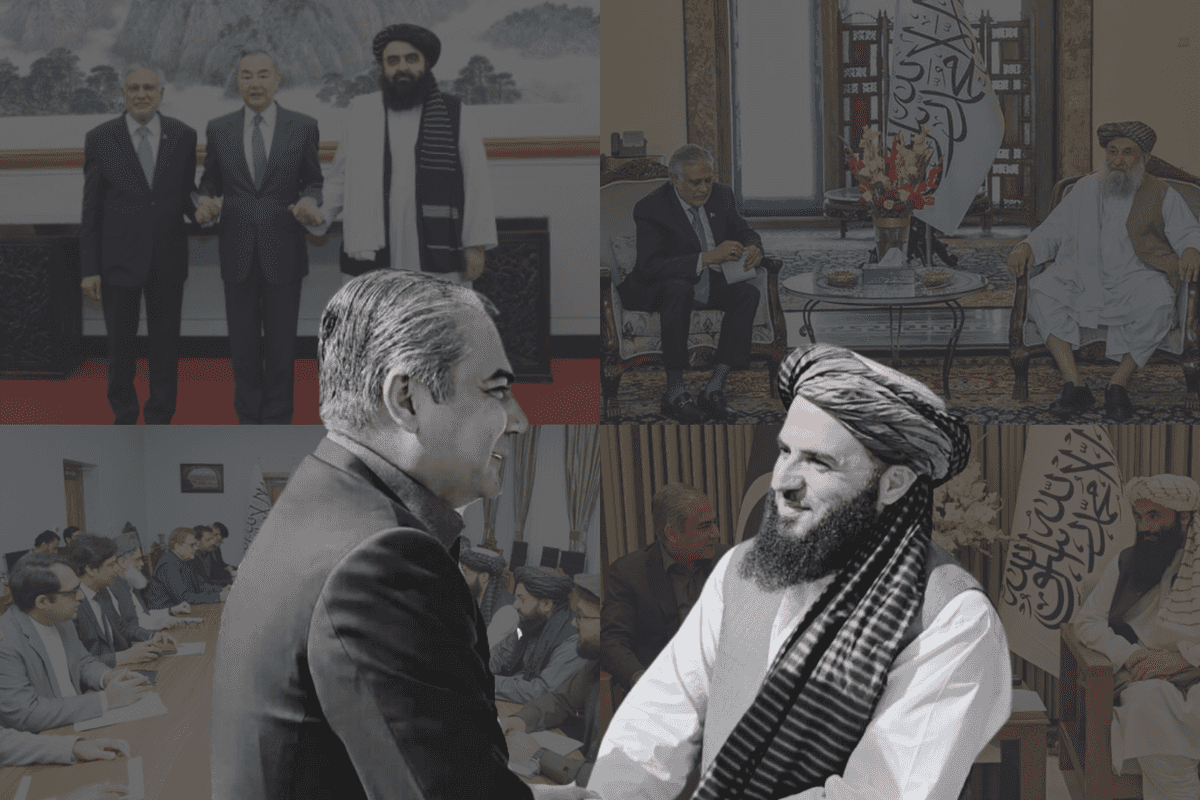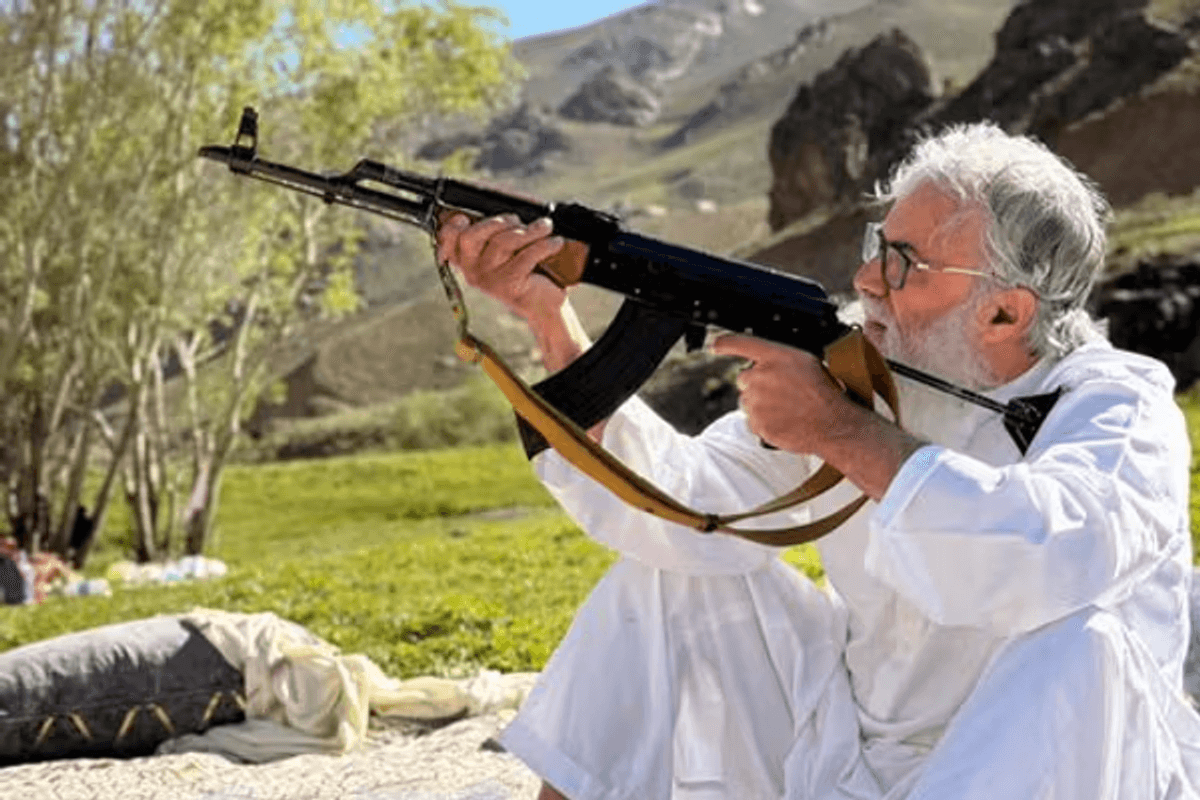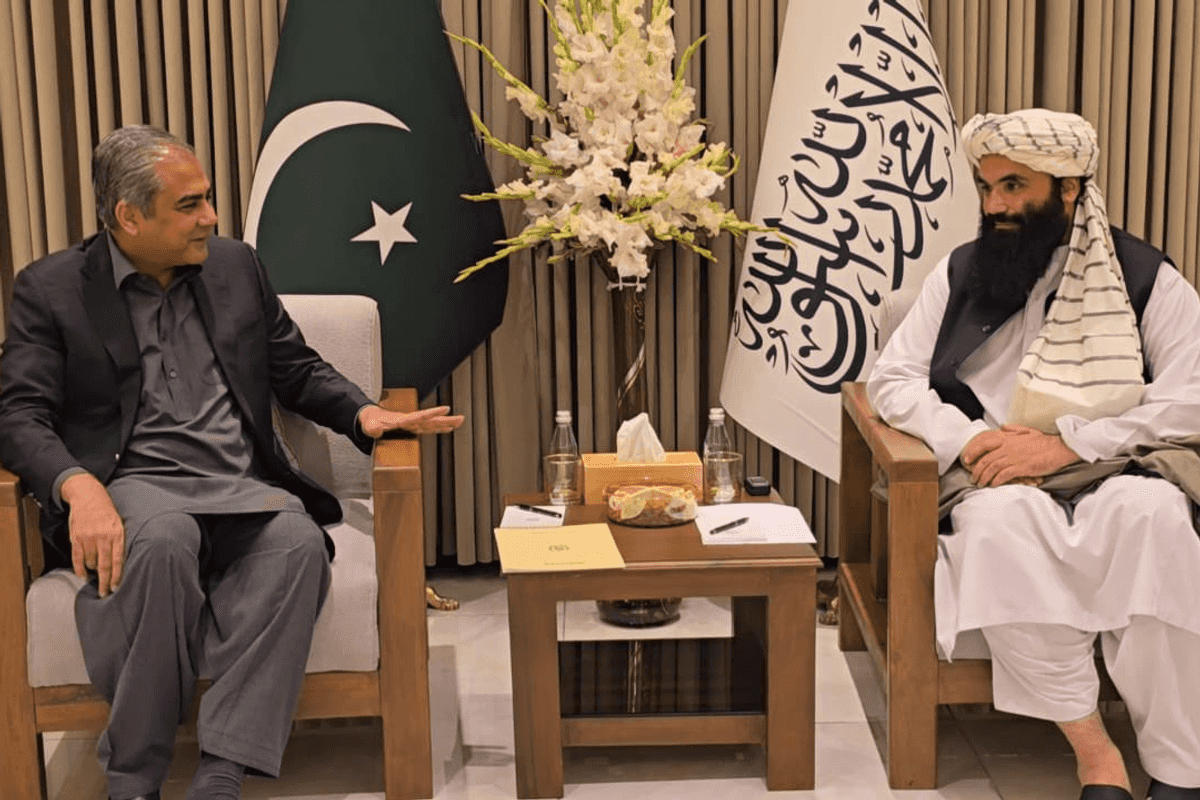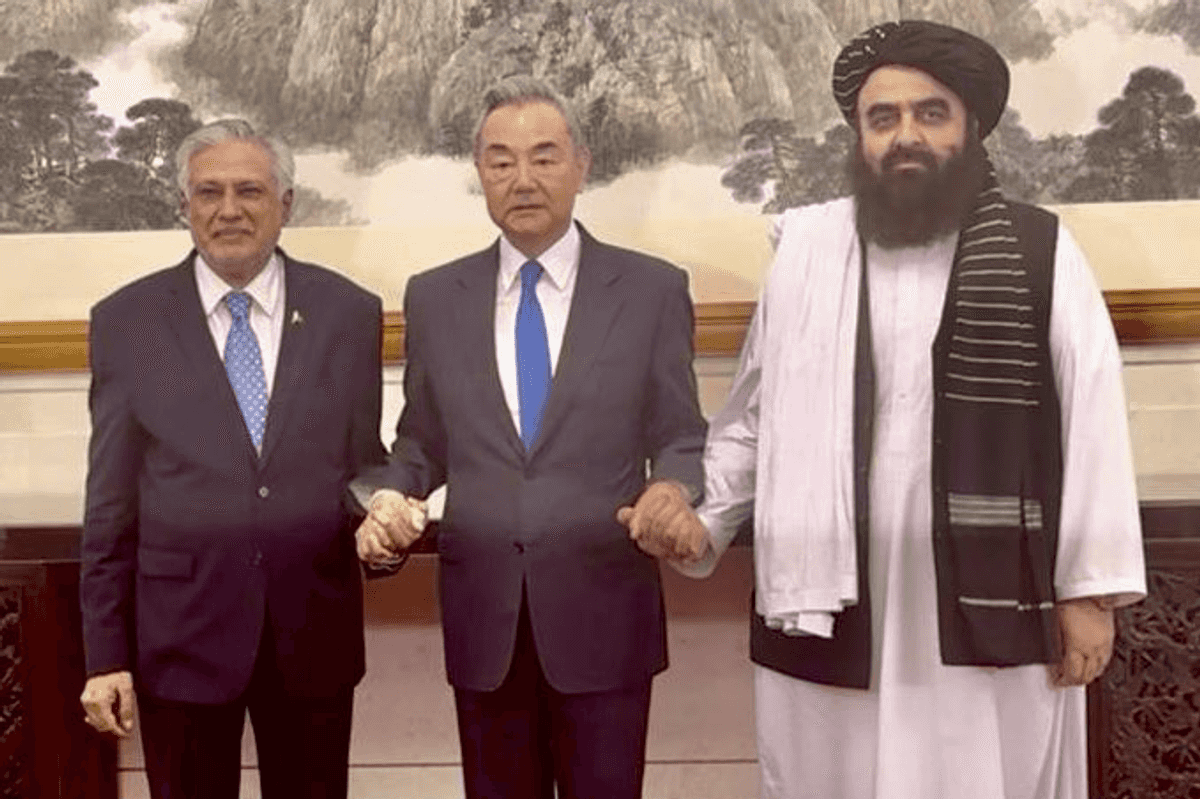Are the Afghan Taliban finally listening to Pakistan?
The Afghan Taliban’s sidelining of key figures and arrest of a pro-TTP cleric hint at a shift in ties with Pakistan, prompting expert debate on where the relationship is headed
Azhar Khan
Producer, Karachi Desk
Azhar Khan is a journalist with over 14 years of experience across print, electronic, and predominantly digital media. He has recently held key editorial roles at leading media organizations.

For years, the relationship between Pakistan and Afghanistan has been defined by suspicion, broken promises, and unfulfilled expectations -- a simmering fault line shaped by cross-border militancy, refugee politics, and geopolitical anxiety. But a recent flurry of moves in Kabul may be signaling a subtle but notable shift in tone.
In recent days, the Afghan Taliban have taken multiple actions that suggest growing internal recalibration and possible external responsiveness. Notable among these is the sidelining of figures such as former deputy foreign minister Abbas Stanikzai and General Mubeen, as well as the arrest of hardline cleric Shaikh Abdul Sami Ghaznawi.
While the motivations behind these steps remain layered and complex, the arrest of Ghaznawi, which came shortly after Pakistani Interior Minister Mohsin Naqvi’s July 20 visit to Kabul, has drawn particular attention.
🚨 BREAKING NEWS – Good news for Pakistan:
After sidelining anti Pakistan Abbas Stanikzai and arresting General Mubeen in Kabul, the Afghan Taliban have now detained prominent scholar Shaikh Abdul Sami Ghaznawi — known for saying “Jihad has no limits” and declaring TTP’s jihad… pic.twitter.com/VmnpWpKz0N
— Sami Yousafzai سمیع یوسفزي (@SamiYousafzaii) July 24, 2025
All three individuals had, in different capacities, issued statements challenging or criticizing the Taliban leadership. Ghaznawi, in particular, had recently voiced support for the banned Tehreek-e-Taliban Pakistan (TTP) and made inflammatory remarks against Pakistan, drawing particular notice in Islamabad.
Naqvi’s visit, during which he met his Afghan counterpart Sirajuddin Haqqani, focused squarely on counterterrorism cooperation and the TTP threat. The diplomatic tone was cautiously optimistic, with both sides agreeing to revive the Joint Coordination Committee and elevate diplomatic ties from chargé d’affaires to full ambassadors. These signs were soon followed by what appeared to be accelerated Taliban moves on the ground.
Amid this evolving climate, Afghanistan’s Acting Foreign Minister Amir Khan Muttaqi is expected to visit Pakistan in early August to continue talks on regional security, border management, and bilateral diplomacy.
Internal Taliban politics or external pressure?
Ghaznawi’s arrest, in particular, has sparked debate over whether it reflects growing internal tensions within the Taliban or a response to mounting pressure from Pakistan. Offering insight into this question, Mansoor Ahmad Khan, Pakistan’s former ambassador to Afghanistan, emphasized the internal dimension of the move.
“He had been critical of Afghan Taliban higher leadership regarding jihad and other issues,” Khan told Nukta. “His detention is a message that the rank and file of the Taliban should comply with leadership’s directives.”
However, Khan acknowledged that due to Ghaznawi’s hardline rhetoric -- especially his views on jihad and support for the TTP -- “many quarters may be interpreting this development as favorable to Pakistan.”

Senior Afghan journalist Sami Yousafzai sees the developments as significant -- but gradual.
“The Pakistan-Afghanistan situation now seems to be getting better,” Yousafzai told Nukta. “But if the Afghan Taliban are to take action against the TTP, they will do it gradually. They cannot act on Pakistan’s dictation. This is a long process.”
That process, he added, would involve “restoration of trust, improvement of border management, and reducing cross-statements against each other.” Only through such groundwork, he believes, can Afghanistan move toward denying space to the TTP on its soil.
Years of frustration, raids, and refugee pressure
Since the Taliban’s return to power in August 2021, Pakistan has repeatedly urged Kabul to rein in the TTP, which Islamabad claims operates from across the border with relative ease. While the Afghan Taliban deny harboring the group, they had until recently refrained from publicly challenging its narrative.
That dynamic shifted late last year when Pakistan launched airstrikes against alleged TTP hideouts inside Afghanistan. The Taliban government condemned the attacks, worsening diplomatic relations. Islamabad then turned up the pressure by speeding up deportations of undocumented Afghan refugees.
Naqvi recently reiterated Islamabad’s official stance: “Pakistan has selflessly hosted millions of Afghan refugees for decades; the doors are open for the legal entry of Afghan citizens.”
The refugee issue remains closely tied to bilateral trust. “Once ties improve, Pakistan may avoid tough action against Afghan immigrants,” Yousafzai noted.
Experts doubt full Afghan govt action against TTP
Despite the string of Taliban moves, experts remain cautious about expecting any sweeping clampdown on the TTP.
“The expectation of an outright military action against the TTP by the Afghan Taliban is not likely,” said Ambassador Khan. “But some steps to address Pakistan’s concerns cannot be ruled out.”

He pointed out that the TTP and Balochistan Liberation Army (BLA) pose “highly complex” challenges.
“There are ideological and logistical linkages between the Afghan Taliban and the TTP. The BLA is not an ideological religious group, but it finds a supportive situation due to Afghan-Pakistan differences,” he added.
Nonetheless, there are signs of diplomatic coordination. Pakistan and Afghanistan held the first round of Additional Secretary-Level Political Consultations earlier this year in Islamabad, followed by a key visit from Deputy Prime Minister and Foreign Minister Ishaq Dar to Kabul.
During these meetings, both sides acknowledged terrorism as a shared threat. Pakistan pressed Kabul to take “concrete actions” against groups operating from its soil -- warning that failure to do so would threaten regional peace and its own national security.
In May, Pakistan took a significant diplomatic step by announcing the restoration of full diplomatic ties with the Taliban-led government -- a move previously hinted at by China’s Foreign Minister Wang Yi during a trilateral dialogue in Beijing.
Is China the quiet power behind the scenes?
China’s role in the evolving Pakistan-Afghanistan equation is hard to ignore. While Beijing has strategic interests -- especially in safeguarding CPEC and broader regional connectivity -- its approach remains measured.

“China has a typical policy: they don’t interfere too much in the internal affairs of countries,” Yousafzai said. “They can give suggestions, but I don’t think they will practically get involved too much in these issues.”
Still, the deeper question is whether these symbolic moves, including high-profile arrests and dismissals, mark a tactical reset or a genuine strategic shift.
As Khan put it:
The longer-term solution lies in Pakistan and Afghanistan developing strong stakes that prevent either side from going against the other’s national interests.







Comments
See what people are discussing